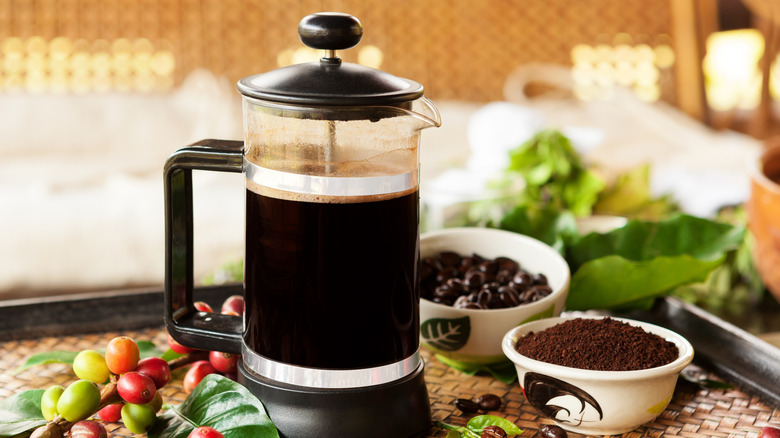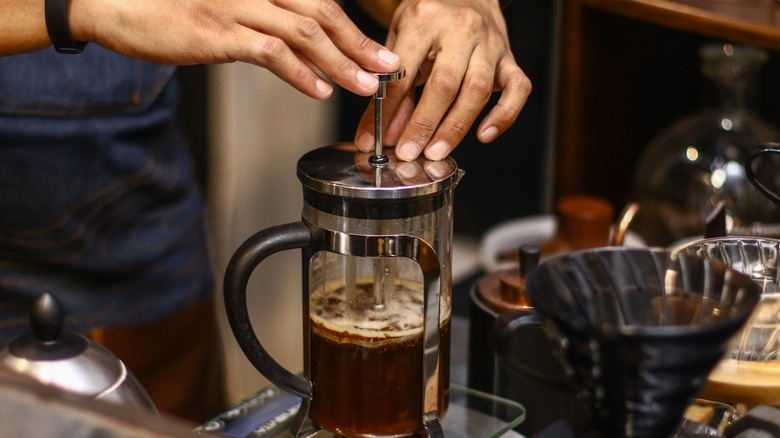The Crucial Timing Tip For Mastering French Press Coffee
When an Ethiopian goat herder named Kaldi discovered the energizing potential of coffee beans, per an enduring legend, it's unlikely the monks who turned those beans into drinks imagined today's elaborate coffee-making contraptions. From percolators and drip machines, to pour-overs, Chemex brewers, Moka pots, single-brew pods, espresso machines, and dozens more, it's easier than ever to get your java fix any time of day or night. Then there's the French press, arguably one of the simplest, most basic methods for coaxing the coveted caffeine elixir from tiny roasted coffee beans.
The French press, first patented in 1852 by a pair of forward-thinking Frenchmen, went through several iterations from entrepreneurs in Italy, Switzerland, and back again to France before resembling the glass plunger-style brewer we know today. But just because it's simple to operate, requiring no electricity, paper filters, or capsules, doesn't mean the preparation technique is without nuances. In fact, like many things in life, mastering the art of coffee perfection comes down to attentive details and intuitive timing.
Only you can determine the perfect flavor, strength, and acidity for your own personal-best cup of coffee, but a French press provides what's arguably the most control over those things. There are no preset timers and no capsule barcodes determining when the coffee is ready. When all is said and done, the primary deciding and defining factor is how long to let it brew before making the plunge. It really comes down to timing, pressing, and resting.
Taking the French press plunge
With a French press coffeemaker, the person operating it simply places ground coffee beans in the bottom of the vessel, pours hot water over them, waits for the water to extract flavor from the crushed beans, and presses on a plunger equipped with a metal mesh filter. The grounds get pushed to the bottom of the container, resulting in a filtered pot of coffee ready for pouring into waiting cups. It's the time before making that plunge that's crucial.
Depending on the type of roasted beans, from dark to light, general time recommendations for French-press brewing range from three to five minutes. Dark-roasted beans can be ready after about three minutes but with a big caveat. If you personally like a super-strong cup of coffee, similar to espresso, let it sit as long as you want. There's no one-and-done timer, only your personal taste preference. For more medium-balanced tones, choose a light roast and let it infuse for about five minutes.
One thing that can help the coffee "bloom" to its full potential is letting the water gradually saturate all the grounds. Rather than pouring the entire amount of water at once, start with a smaller amount, roughly double the height of the grounds. Wait about 30 seconds, then stir, and add the remaining hot water to the desired level. That's when the timing really begins. While you wait, the oils in the beans are imparting texture and flavor for your ultimate daily coffee experience.

